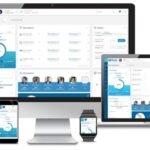A checking account is one of the most common types of bank accounts used by individuals and businesses for day-to-day financial transactions. In the United States, checking accounts offer a wide array of benefits, making them a popular choice for managing money and facilitating routine payments. Whether you’re paying bills, making purchases, or managing payroll for a business, a checking account serves as the foundation for your financial activities.
In this article, we will explore the numerous advantages of checking accounts in US banks, highlighting how they support everyday transactions and help individuals maintain financial security and flexibility.
1. Convenience of Accessing Funds
One of the primary benefits of a checking account is the convenience it offers when accessing your funds. With a checking account, you can easily withdraw cash from ATMs or make electronic transfers to other accounts or businesses. US banks typically offer access to a vast network of ATMs, which allows account holders to withdraw money without incurring fees.
Moreover, most checking accounts provide 24/7 access through mobile banking apps, allowing you to check your balance, transfer money, or pay bills whenever you need to. This level of access provides flexibility and peace of mind, knowing that you can manage your finances on-the-go.
2. Facilitating Everyday Transactions
Checking accounts are designed to support everyday financial transactions. From paying for groceries to purchasing online goods or services, checking accounts make these tasks simple and secure. You can use your checking account to:
- Write Checks: Although checks are becoming less common, many people still use them to pay for larger purchases, rent, or services. A checking account provides the ability to issue personal checks, which are widely accepted by individuals and businesses across the country.
- Debit Card Purchases: A checking account often comes with a debit card that allows you to make purchases directly from your account. This means you don’t need to carry cash or worry about writing checks. Simply swipe or tap your card, and the transaction is completed.
- Bill Payments: Setting up bill payments through your checking account is one of the most convenient ways to manage your expenses. Whether it’s utility bills, mortgage payments, or subscription services, you can set up automatic bill pay to ensure timely payments, saving both time and effort.
The ability to perform these everyday transactions quickly and efficiently makes a checking account an essential tool for managing personal finances.
3. Safety and Security of Funds
Checking accounts provide a safe and secure place to store your money. Rather than keeping cash at home, which can be lost or stolen, depositing money into a checking account ensures that your funds are protected by your bank’s security measures. Most banks in the US offer various protections, such as encryption technology and fraud monitoring, to keep your account secure.
In addition, checking accounts are typically insured by the Federal Deposit Insurance Corporation (FDIC) up to $250,000 per depositor, per insured bank. This means that if the bank fails, your deposits are protected by the government, giving you peace of mind that your money is safe.
4. Building a Financial History
A checking account also plays an essential role in establishing and building your financial history. By consistently using your checking account to deposit income, pay bills, and manage spending, you create a track record of responsible financial behavior. This history can be beneficial when applying for credit, loans, or mortgages.
Many financial institutions and lenders will review your checking account history to assess your financial habits. For example, they may consider whether you regularly maintain a positive balance or if you have any overdraft occurrences. A good checking account history can increase your chances of securing a loan or a credit card with favorable terms.
5. Budgeting and Financial Management
Modern checking accounts come equipped with various tools to help individuals manage their finances. Many US banks offer budgeting features within their online banking platforms or mobile apps. These tools can help you track your spending, set up savings goals, and monitor your financial health.
- Transaction History: Checking accounts provide detailed records of your transactions, making it easier to track where your money is going. By reviewing your transaction history regularly, you can identify areas where you might be overspending and adjust your budget accordingly.
- Alerts and Notifications: Many banks offer alerts that notify you of account activity, such as large transactions, low balances, or bill payment due dates. These alerts help you stay on top of your financial situation and avoid overspending or missed payments.
- Spending Insights: Some banks offer insights into your spending patterns, categorizing your expenses into areas like dining, entertainment, and utilities. This can help you create a more accurate and realistic budget.
By providing these tools, checking accounts can be an effective way to manage your finances and make informed decisions about your spending and savings.
6. Access to Overdraft Protection
Overdraft protection is an essential feature offered by many checking accounts. It prevents your account from going into the negative if you make a transaction that exceeds your available balance. When overdraft protection is activated, the bank may cover the difference, usually for a fee, allowing the transaction to go through without declined payments or bounced checks.
While overdraft protection can be helpful in emergencies, it’s important to use this feature responsibly to avoid unnecessary fees. Some banks may offer an alternative, such as linking your checking account to a savings account or credit line for overdraft protection, potentially saving you money on fees.
7. Earning Interest on Your Checking Account
Although not all checking accounts offer interest, some do, and they can be a great way to earn a small return on your money while keeping it accessible for everyday transactions. These accounts are typically referred to as interest-bearing checking accounts, and they often require a minimum balance to earn interest.
The interest rates on checking accounts are generally lower than those of savings accounts, but they still provide a way to earn money on your balance while maintaining the flexibility of a checking account.
8. Convenience of Direct Deposit
Another significant benefit of checking accounts is the ability to set up direct deposit. Direct deposit allows you to have your paycheck, government benefits, or tax refunds directly deposited into your checking account. This eliminates the need to visit the bank to deposit a check and ensures your funds are available immediately on payday.
Direct deposit also helps prevent delays and potential errors associated with paper checks, making it a fast and reliable way to receive payments.
Conclusion
Checking accounts are essential for managing everyday transactions and maintaining financial security. They provide convenience, safety, and a range of features that allow individuals to access their money, pay bills, and track their spending. Additionally, checking accounts can help build a financial history, making it easier to qualify for loans and credit in the future.
With the variety of checking account options available, including interest-bearing accounts, overdraft protection, and budgeting tools, US banks offer solutions that cater to different financial needs. Whether you’re a student, professional, or business owner, having a checking account is crucial for managing your finances and ensuring smooth, efficient transactions.


